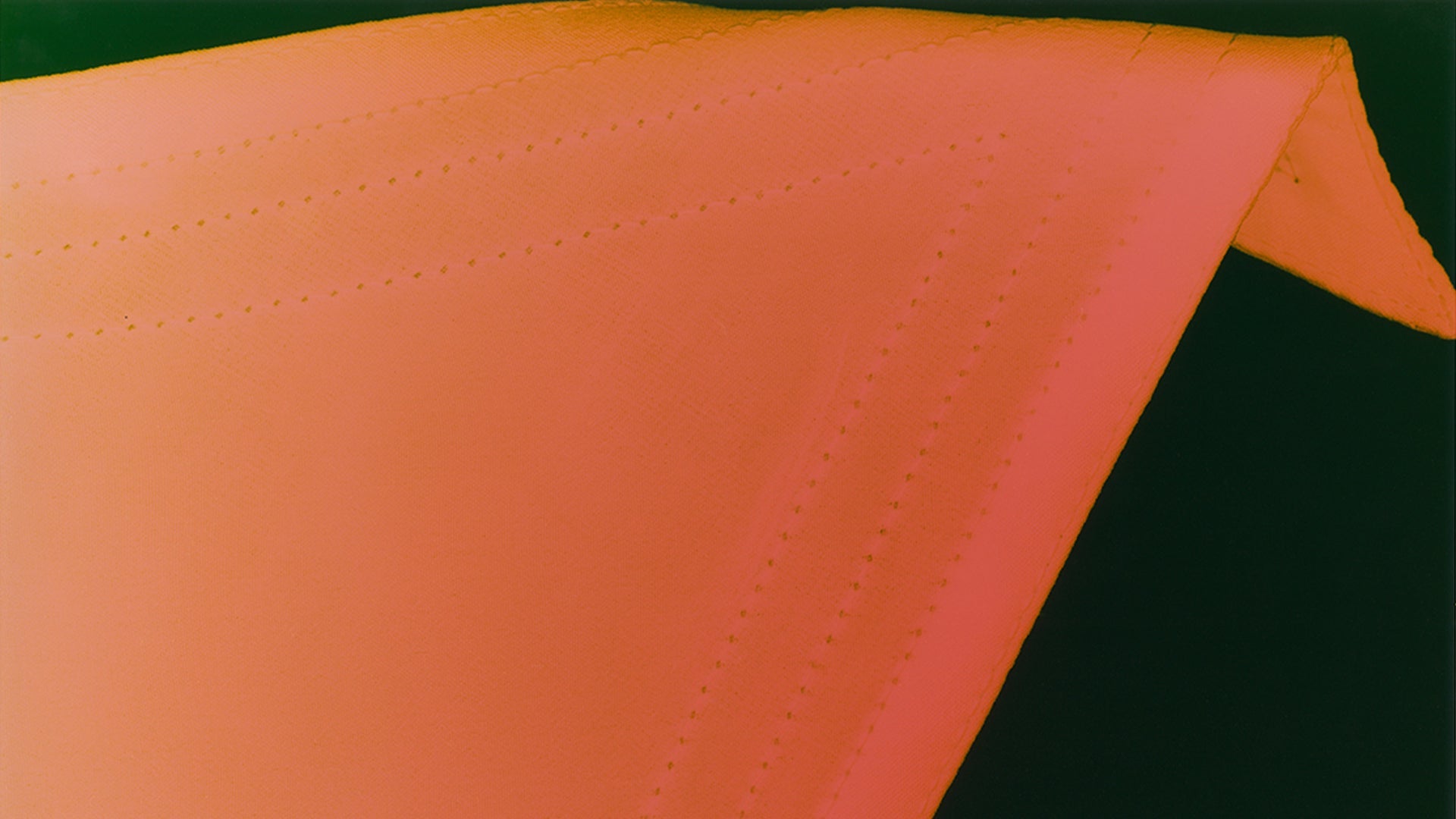
StripRebekka Deubner
IN THE MAKING
The first step of photography is the photogram: objects are placed on a photosensitive paper, which is then exposed to light, and after the development and fixing process, the negative, ghostly and luminous imprint of these same objects remains.


Ever since Henri Fox Talbot introduced the concept in the 1830s, photographers such as Anna Atkins, Man Ray, László Moholy-Nagy, Nancy Wilson-Pajic and Christian Marclay have continuously engaged with this exercise. Through it, the very essence of the medium manifests itself, i.e. the poetics at work behind the traces, a constant battle between light and shadow, presence and absence.
Rebekka Deubner revisits this poetic approach through a language of intense colours and unique 30 x 40 formats. The clothes, like moulted skin, have been laid flat so that the paper retains their imprint, their aura even. This practice has little to do with a systematic and clinical inventory, but is more of a rite of passage, a play on the filters’ density against a lightly plastic-coated paper. And depending on the combinations, the garment disappears and reveals instead contrasting patterns of transparency and abstraction. However, it also asserts itself at times in its supple graphic form, bringing us back to its nature as a second skin.

This tension between abstraction and representation gives rise to an act of remembrance as much as aesthetics of joy. Reminiscent of Ishiuchi Miyako’s Mother project (2000-2005), in which the artist posthumously photographed her mother’s personal belongings, Rebekka Deubner’s Strip series departs, nonetheless, from the eulogy. Using a colour palette that invokes a wide range of emotions, her photograms rekindle a sense of life, with Eros not far behind.
Words MARIE AUGER






